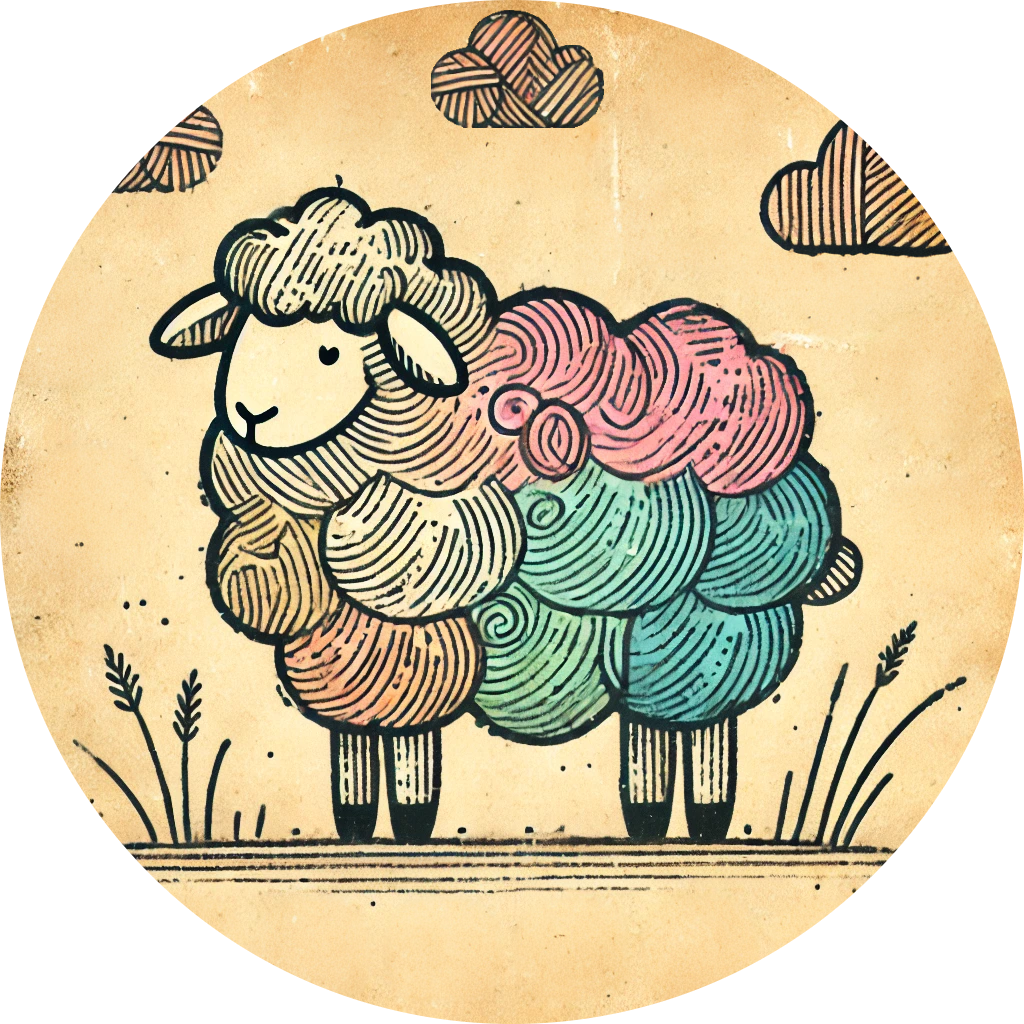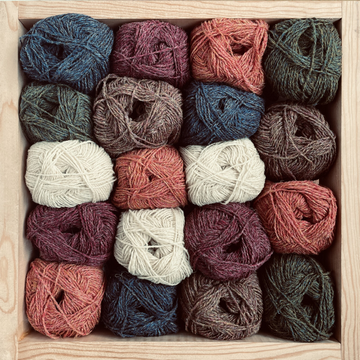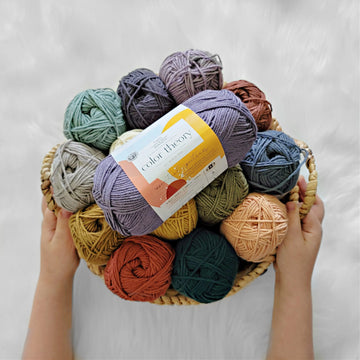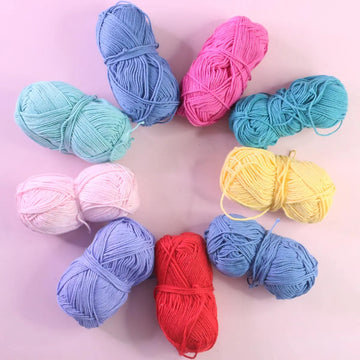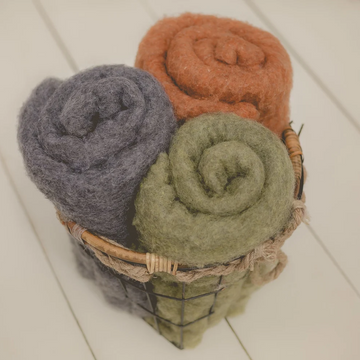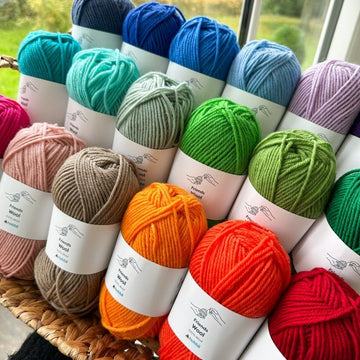The Downsides of Wool Certifications.. A Guide for Conscious Crafters
bij Adriaan Vonk op Mar 12, 2025
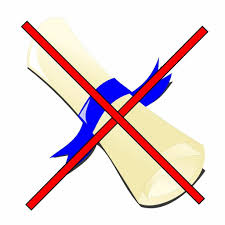
At Knitted Clouds, we value transparency, sustainability, and ethical wool production. Certifications like GOTS, RWS, OEKO-TEX®, and ClimatePartner are meant to provide assurance that wool meets certain environmental and ethical standards. However, while certifications can be helpful, they also come with limitations, costs, and potential greenwashing risks.
In this blog, we’ll explore the downsides of wool certifications, helping you make more informed decisions about the yarn you choose.
1. High Costs That Exclude Small Farmers & Mills
One of the biggest challenges of wool certifications is the high cost of certification. Small-scale farms and independent wool mills often follow ethical and sustainable practices, but they may not be able to afford the expensive process of getting certified.
🔴 Certification fees can be too expensive for small family-run farms.
🔴 Yearly renewal costs create financial burdens, even for responsible producers.
🔴 Some of the best-quality, ethically sourced wool might not be certified—simply because the producers can’t afford it.
💡 What This Means for You: Some of the most sustainable and ethical wool might not carry an official certification, even though it meets or exceeds the standards set by these labels.
2. Limited Scope: Not All Certifications Cover Every Aspect
Wool certifications often focus on one specific aspect of sustainability, such as:
- Animal welfare (RWS, GOTS)
- Environmental impact (ClimatePartner, GOTS)
- Chemical-free processing (OEKO-TEX®, GOTS)
- Fair labor conditions (GOTS, Fair Trade)
However, no single certification covers everything. The closed of a total cover of all the certificates is actually made in EU!
🔴 A GOTS-certified wool might be organic, but it doesn’t always guarantee the highest animal welfare standards.
🔴 An OEKO-TEX® certified yarn ensures no harmful chemicals but says nothing about how the sheep were treated.
🔴 ClimatePartner focuses on carbon neutrality, but does not regulate chemical usage or animal welfare.
💡 What This Means for You: A certification label does not always mean the wool is perfect in every way. It’s important to look beyond the logo and understand what is actually being certified.
3. Greenwashing & Misleading Claims
Many brands use certifications as a marketing tool rather than a true commitment to sustainability. This can lead to greenwashing—where a product appears more ethical or eco-friendly than it actually is.
🔴 Some brands highlight certifications on just one part of the production process, while ignoring ethical concerns in other areas.
🔴 Companies might use certification labels to distract from unsustainable practices elsewhere in their supply chain.
🔴 Certain certifications have lower requirements than expected, meaning that a certified product is not always as ethical or sustainable as it seems.
💡 What This Means for You: Just because a yarn carries a certification doesn’t automatically make it the best ethical or sustainable choice. Researching the brand’s actual practices can sometimes tell you more than a label.
But we got you covert with that!
4. Certifications Do Not Guarantee Local, Traceable Wool
Some certifications allow certified wool to be blended from multiple sources, making it difficult to trace exactly where your wool comes from.
🔴 Certified wool may still be shipped long distances, increasing the carbon footprint.
🔴 Wool from different regions can be mixed together, meaning it’s not always clear which farms or countries it came from.
🔴 Some certification programs focus on mass production, making it hard for small, local farms to participate.
💡 What This Means for You: If you care about traceability and local sourcing, choosing European Origin wool from responsible farms might be a better indicator of quality and ethics than just looking for a certification logo.
5. Some Certifications Are Easier to Get Than Others
Not all wool certifications have strict regulations. Some have looser requirements, allowing companies to obtain certification without making real, impactful changes to their production methods.
🔴 Some brands get certified for only a portion of their production, but use the label for all of their wool.
🔴 Some certifications allow companies to be partially compliant, meaning not all wool in their supply chain meets the highest standards.
🔴 Certain "eco-friendly" labels have lower testing standards, meaning certified products may still contain trace amounts of harmful chemicals.
💡 What This Means for You: Understanding which certifications are the most rigorous (like GOTS or IVN Best) versus those that are weaker can help you make better purchasing decisions.
How Knitted Clouds Navigates Certifications
At Knitted Clouds, we recognize the value of wool certifications, but we also understand their limitations. That’s why we go beyond just labels and focus on:
✔️ Transparency – We work with brands and farms that provide full traceability, even if they don’t have a specific certification.
✔️ Direct sourcing – Many of our yarns come from small, responsible European farms that follow ethical and sustainable practices, whether they are certified or not.
✔️ Multiple factors – We don’t rely on just one certification; we consider animal welfare, environmental impact, processing methods, and overall sustainability.
✔️ Honest communication – If a yarn doesn’t carry a certification but still meets our high ethical and sustainability standards, we’ll tell you why we’ve chosen to offer it.
Final Thoughts: Are Wool Certifications Enough?
Wool certifications can be a helpful guide, but they are not the only factor in choosing sustainable and ethical yarn. While they provide important industry standards, they also have limitations, and some of the best wool comes from farms that simply can’t afford certification.
At Knitted Clouds, we believe in a balanced approach:
🐑 Supporting certified brands that truly uphold sustainability and animal welfare.
🌍 Working with small European farms that practice ethical wool production—whether certified or not.
🧶 Providing full transparency, so you can make informed choices beyond just the certification label.
The best way to ensure you’re choosing ethical wool? Look for traceability, transparency, and a brand’s actual commitment to sustainability—not just a logo.
🧶 Want to shop wool you can trust? Browse our carefully curated selection of sustainable, ethical yarns here!
